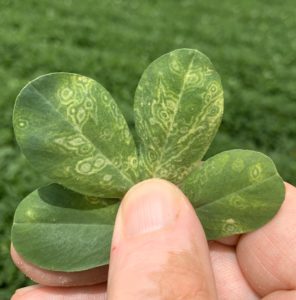Tifton, GA |
For almost five decades, peanut growers in Georgia have convened at the Georgia Peanut Farm Show – an annual event facilitating fellowship among producers, showcasing cutting-edge equipment, and providing updates from industry experts.
“We always see new challenges on the farm and there’s always some new technology and maybe new ways of doing the same things. So, we get this to look at maybe new planters or updated harvest machinery. And so, it’s always an opportunity for us to think about how we’re doing things and maybe there’s some changes we would like to make to our own production system. It’s a really good opportunity to just see what’s out there,” expressed Donald Chase, Vice Chairman of the GA Peanut Commission.
In addition to networking with vendors and exploring new equipment, attendees participated in production seminars led by industry experts like Scott Monfort, an Extension Peanut Agronomist at the University of Georgia. Monfort addressed the tumultuous year for growers, highlighting the detrimental impact of weather fluctuations on crop yields.
“Unfortunately, if we get into a situation with a disease problem or insect problem, yeah, they might have done some damage, but we can get in there and correct that pretty quick and it wouldn’t hurt as much, but when you’re talking about the weather and its impact on the overall growth and productivity of the plant, you really don’t see that as a whole until you start digging. It’s not uncommon for us to see that in a small geographic location, but not across the whole state,” explained Monfort.
The adverse growing conditions led to a challenging harvest season, as Monfort noted grading issues stemming from the erratic weather patterns witnessed statewide.
“Not only did non-irrigated get impacted, but our irrigated did too. That’s where we had pods that aborted some of the nuts. We didn’t get them formed. They didn’t fill out all the way to the hull. So, we get smaller peanuts. Dry land didn’t produce much at all in some areas. So it just just compounded on us and then this whole grade issue was with what happened in May, then what happened in June and July. If we would have stayed hot in late August going into September and October, we could have corrected some of that because the plant could have really put on a lot of pods and matured them out, but we didn’t, we cooled off. So that hit us again,” Monfort elaborated.
Bob Kemerait, Extension Plant Pathologist at UGA, emphasized the significant role of disease pressure alongside unfavorable weather conditions.
“The yields that came off of last year were disappointing to a lot of growers. We weren’t at the top; it wasn’t a terrible year, but we weren’t the best. Some of the things that affected that was tomato spotted wilt virus and also white mold. So, a lot of that was environmentally driven. The hot, dry weather made the white mold worse, especially for farmers with non-irrigated fields. Also, our tomato spotted wilt virus, based upon some of the early situations in the 2023 crop was more severe, and so in part, the disappointing yield was not just the growing season, but it was growing season in concert with things like tomato spotted wilt virus and white mold,” Kemerait explained.
By: John Holcomb


